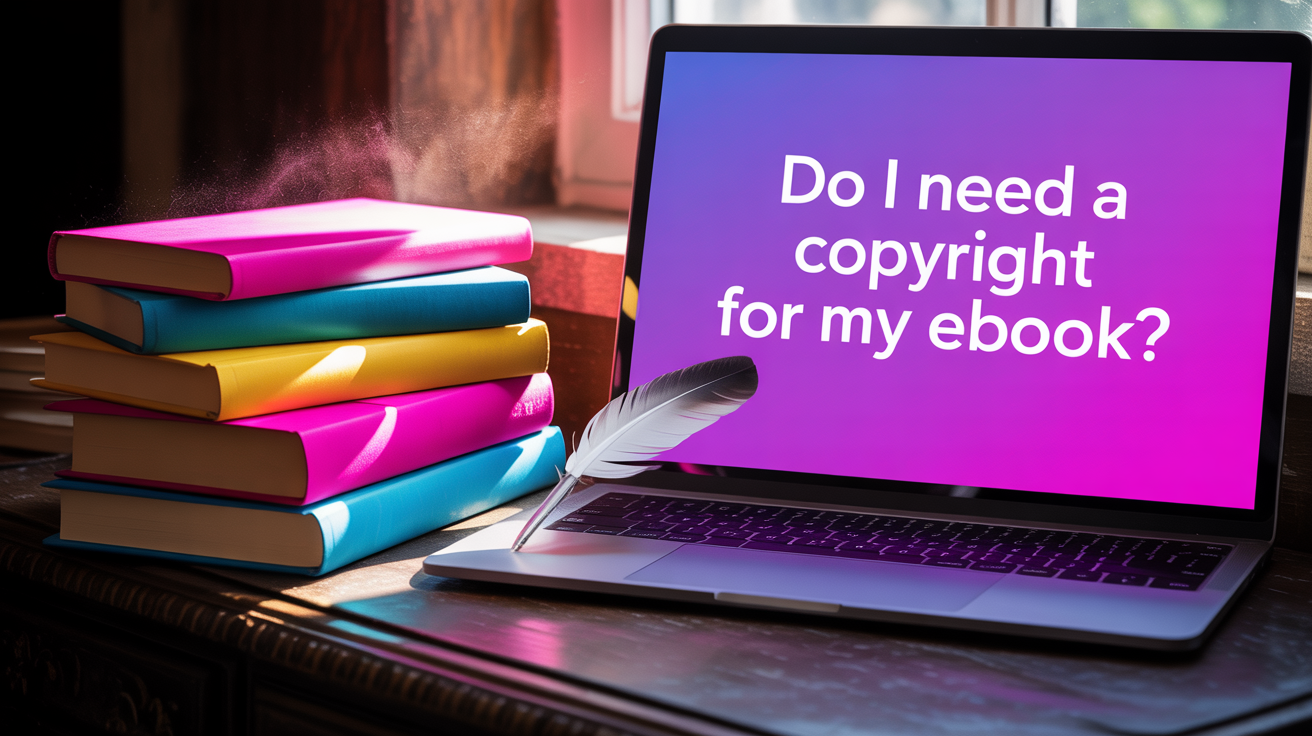Do I Need a Copyright for My eBook? Everything You Should Know
If you’ve poured your creativity, time, and expertise into writing an eBook, protecting your intellectual property is likely on your mind. One of the most common questions new authors ask is: Do I need to obtain a copyright for my eBook? The answer isn’t as straightforward as a simple yes or no. Understanding how copyright law applies to digital content like eBooks can save you headaches later and help you safeguard your work effectively.
In this comprehensive guide, we’ll explore what copyright means for your eBook, whether formal registration is necessary, the benefits of registering, and practical steps you can take to protect your rights. By the end, you’ll have a clear picture of how copyright works and actionable tips to secure your eBook’s legal footing.
What Is Copyright and How Does It Apply to eBooks?
Copyright Basics
Copyright is a legal right that grants the creator of an original work exclusive rights to its use and distribution. This includes literary works like books, articles, and eBooks. Copyright protects your work from unauthorized copying, distribution, or adaptation by others without your permission.
Automatic Copyright Protection
One of the most important things to know is that you do not need to formally register a copyright to have protection for your eBook. According to copyright law, the moment your original work is “fixed in a tangible medium,” you automatically own the copyright. For eBooks, this means as soon as you write your manuscript and save it as a digital file or print it out, you legally own the copyright to that work.
This automatic protection is a key feature of copyright law designed to protect creators instantly and without any bureaucratic steps.
Should You Include a Copyright Notice in Your eBook?
While you automatically own the copyright upon creation, adding a copyright notice to your eBook is a highly recommended best practice. This typically appears on the copyright page of your eBook and looks like this:
Copyright © [Your Name] [Year]. All rights reserved.
Why Include a Copyright Notice?
- Clear Ownership: It signals to readers and potential infringers that the work is legally protected and owned by you.
- Deterrent Against Infringement: A visible copyright notice can discourage unauthorized use or copying because it shows you are serious about your rights.
- Professionalism: It adds credibility and professionalism to your publication.
What Should the Notice Include?
- The word “Copyright” or the © symbol
- Your name (or the name of the copyright holder)
- The year of first publication
- A rights reserved statement, such as “All rights reserved”
Including this simple but effective statement helps establish your ownership publicly and can be invaluable if you need to enforce your rights later.
Is Formal Copyright Registration Necessary?
The Truth About Registration
Although copyright protection is automatic, registering your copyright with the U.S. Copyright Office (or your country’s equivalent) is optional but strongly recommended for several reasons.
Benefits of Registration:
- Legal Evidence of Ownership: Registration creates an official public record of your copyright claim, making it "undeniable and legally airtight."
- Ability to File a Lawsuit: In the United States, you must have a registered copyright before you can file a lawsuit for infringement.
- Potential Monetary Damages: Registered works may be eligible for statutory damages and attorney’s fees in infringement cases — protections not available otherwise.
- Peace of Mind: Registration can deter potential infringers who know you have official proof of ownership.
How to Register Your eBook Copyright in the U.S.
Registering your copyright is a straightforward process:
- Visit copyright.gov.
- Complete the online application form.
- Pay the filing fee (currently $35 for a single work).
- Upload a copy of your eBook file as a deposit.
Once submitted, the U.S. Copyright Office will review your application and, if everything is in order, issue a certificate of registration. This process typically takes several months but provides long-term protection.
Additional Tips to Protect Your eBook
1. Keep Detailed Records
Maintain copies of your original drafts, notes, and timestamps that prove when you created the work. These can be useful if you ever need to demonstrate ownership or originality.
2. Use Digital Rights Management (DRM)
Consider employing DRM tools offered by many eBook platforms to restrict unauthorized copying or sharing of your content.
3. Monitor for Infringement
Regularly check online stores, websites, and digital marketplaces for unauthorized copies of your eBook. Tools like Google Alerts or plagiarism detection services can help.
4. Understand Your Publishing Agreements
If you’re working with publishers or distributors, read contracts carefully to understand how copyright ownership and rights are handled.
Summary: Do You Need a Copyright for Your eBook?
To recap:
- You automatically own the copyright to your eBook the moment you write it and save it in any tangible form.
- Including a copyright notice and rights reserved statement in your eBook is highly recommended to clarify your ownership.
- Formal copyright registration is not required, but it provides significant legal advantages, including the ability to sue for infringement and claim statutory damages.
- Registering your copyright is a relatively simple and affordable process that can add valuable protection.
- Additional protective measures such as record keeping, DRM, and monitoring can further safeguard your work.
Final Thoughts
Protecting your eBook starts with knowing your rights—and copyright law has you covered from the moment you put pen to paper (or fingers to keyboard). While automatic copyright protection is powerful, taking a few extra steps like adding a copyright notice and registering your work can provide peace of mind and stronger legal backup.
If you want to ensure your creative labor is fully protected and enforceable, consider registering your copyright. And don’t forget to clearly communicate your ownership through copyright notices in your eBook.
By understanding how copyright works and taking proactive steps, you can confidently share your eBook with the world knowing your rights are secure.
Actionable Takeaways:
- Always add a copyright notice and "All rights reserved" statement in your eBook.
- Keep original drafts and timestamps to prove authorship.
- Consider registering your copyright to unlock stronger legal protections.
- Use DRM and monitor the web for unauthorized copies.
- Read all publishing contracts carefully to understand rights.
Your creative work deserves protection—take the steps today to safeguard your eBook for tomorrow.
Ready to create stunning, high-quality ebooks faster than ever? 🚀 BookBlitz AI Ebook Generator harnesses the power of the latest AI technology—featuring OpenAI’s GPT-4.1 for text generation and Ideogram v3 Turbo for eye-catching, professional book covers.
Generate ebooks in any language, perfectly tailored with genre, audience, and style suggestions. Plus, unlock the Topic Generator—instantly generate 200 bestselling book titles in the top 10 profitable subniches for your chosen topic.
Join thousands of authors and creators who trust BookBlitzAI to simplify ebook publishing and boost their success.
Start your free trial now and turn your ideas into profits today! 👉 Explore BookBlitzAI.com
Your next bestseller is just a click away.



